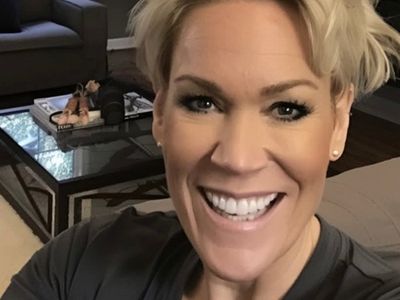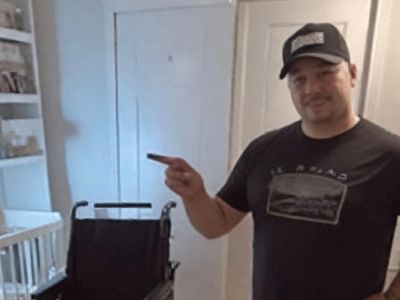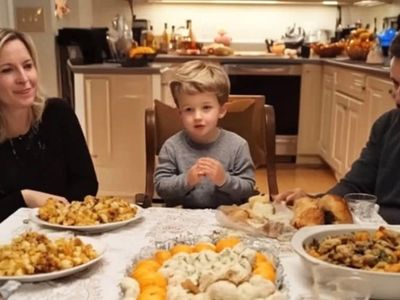My Stepdaughters Viewed Me as Inferior and Unimportant – Then, Their Perspective Shifted Unexpectedly.
When I fell for a man older than me who had three grown children, I had no clue what I was stepping into. His daughters assumed I was only interested in his wealth, but once they learned the truth about us, they tried to manipulate me—and I wasn’t having it.
Falling in love in my forties wasn’t something I expected to bring so much scrutiny. I’m 43 and in a relationship with Elon, a 61-year-old widower who works in banking. I, on the other hand, am a bartender. Unfortunately, this combination led his daughters to conclude that I was a gold digger who only cared about money.
I can see how Amanda and Claire, his daughters, might think it’s a typical story: a younger woman with an older, more financially stable man. They were convinced I was seeking financial advantage, though their brother, Mark, was the exception—he welcomed me warmly and didn’t jump to conclusions about my motives.
What they didn’t realize, however, was just how wrong their assumptions were. Elon isn’t wealthy. In fact, he’s buried in debt, whereas I have my own trust fund and several successful businesses.
Bartending isn’t something I do out of necessity; I genuinely enjoy it. Elon’s financial troubles stem from the sacrifices he made for his late wife during her fight against cancer.
The cancer returned three times, and each time, Elon gave everything he had to support her treatments. He maxed out credit cards, refinanced his home, and emptied his retirement accounts, all to give her a fighting chance. His dream was to help her live long enough to witness their daughters’ weddings, but tragically, she passed away a few years before we met. Now, he’s left with massive debt while his daughters live comfortable suburban lives.
Amanda and Claire live six hours away with their fiancés, and for the last two Christmases, Elon and I have made the long journey to visit them. Both times, I was met with icy stares and subtle digs.
They excluded me from conversations, pulled Elon aside whenever he tried to include me, and made it clear they didn’t see me as part of their family. They often made snide remarks about my job, such as, “At your age, it’s sad to be just a bartender,” while trying to present themselves as classy and sophisticated.
Elon defended me as much as he could, but it didn’t stop their behavior. The first Christmas, he confronted them, and they apologized—but only to him. They justified their actions by saying it was difficult to see their father with someone new after their mother’s death.
Because I love Elon and saw a future with him, I chose to be patient. Grief can make people act out in unexpected ways. But when the second Christmas came around, their passive-aggressive comments escalated. Amanda openly mocked my career, saying, “It’s kind of pathetic to still be just a bartender at your age.”
I didn’t respond. I didn’t tell them about my trust fund or businesses. There was no point. I prefer humility and didn’t feel they deserved to know the truth. I wanted them to accept me for who I am, not what I own or could provide.
But everything changed after a gift I gave to Elon.
This year, I decided not to join Elon on the trip. “I can’t do it,” I told him. “They don’t respect me, and I won’t keep putting myself in that position.”
He looked torn but admitted, “The drive is tough on my back, and the car’s not great for long trips.”
I didn’t want to come between him and his family, so I leased a luxury car for him through my brother’s dealership. It was a safe, comfortable option to ease the journey.
When Elon mentioned the car to his daughters, they were furious. They assumed he had spent “their mother’s money” and were angry he hadn’t contributed to their wedding expenses instead. Elon couldn’t even explain the truth before they unleashed their anger.
Meanwhile, I’d learned that Mark and his wife, Sarah, were struggling to afford medical treatments for their son, Ethan. They had sold their car to cover bills, leaving them stuck. Without Elon knowing, I bought them a reliable SUV—not extravagant, just practical—for their trips to doctor’s appointments.
When Amanda and Claire found out, they assumed Elon had paid for it and were livid. “Why would Dad buy them a car and not help us with our weddings?” they fumed. But when they learned I had paid for it, their attitudes shifted.
They called, asking to meet and claiming they wanted to apologize. I agreed, though I was skeptical. Elon was hopeful, but I doubted their sincerity.
At first, they appeared genuine. “We misjudged you,” Amanda said tightly. Claire added, “It was wrong of us, and we’re grateful for what you did for Mark.”
I almost believed them—until Amanda casually added, “By the way, with our weddings coming up, it’d be amazing if you could help with the costs.”
Claire chimed in, “Yeah, just a little something. You’ve already been so generous.”
And there it was: their true intentions.
I smiled and simply said, “No.”
Amanda’s face reddened. “Are you serious?! After everything you’ve done for Mark?”
Claire snapped, “You’re such a hypocrite! Acting all generous but refusing to help family!”
Amanda slammed her glass down, spilling wine across the table. “Unbelievable!” she shouted before storming out. Claire glared at me. “You’ll regret this,” she hissed before following her sister.
Elon sat quietly, processing everything. “I told you this would happen,” I said softly.
He sighed. “I didn’t want to believe it, but you were right.”
Since then, Elon’s relationship with Amanda and Claire has grown distant. They rarely speak, and when they do, it’s brief. While I feel bad for him, I can’t fix the rift. Instead, we’ve focused on building a life together. We’ve taken small trips, spent quiet evenings at home, and grown closer to Mark’s family. Ethan even calls me “Auntie” now, which warms my heart.
Amanda and Claire can think what they want. Elon and I know the truth: our love is built on trust, respect, and genuine care. And for the first time, I feel truly content.






